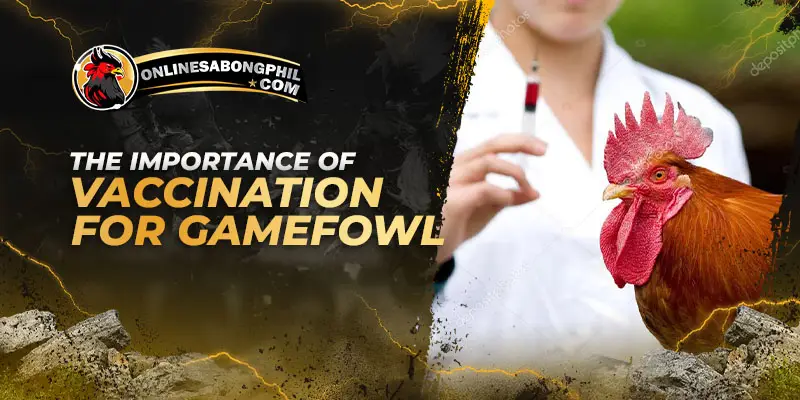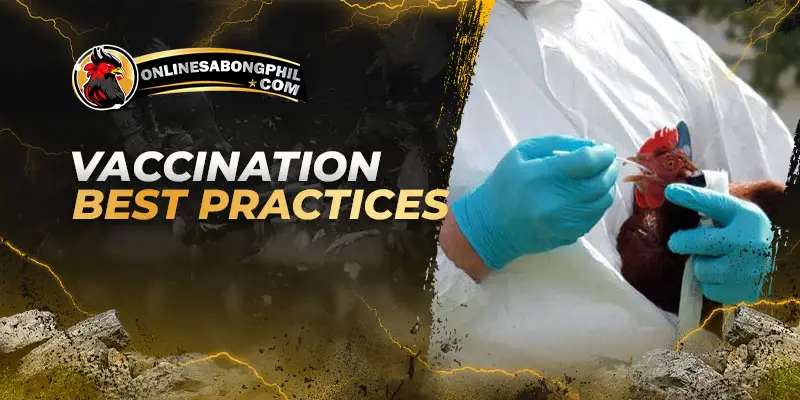Common Gamefowl Diseases
Gamefowl, known for their strength and athleticism, require careful attention to their health. Like other poultry, they are susceptible to various infectious diseases jeopardizing their well-being and performance. Understanding these diseases is the first step towards protecting your flock. Here’s a breakdown of the most common ailments affecting gamefowl:
Respiratory Diseases
Fowl Pox: This viral infection manifests as lesions on the skin, comb, and wattles. It can also cause respiratory problems like difficulty breathing and discharge.
Newcastle Disease: A highly contagious viral disease, Newcastle Disease presents with respiratory distress (coughing, sneezing), neurological symptoms (tremors, paralysis), and digestive issues (diarrhea).
Infectious Bronchitis: Gamefowl infected with Infectious Bronchitis struggle with breathing, reduced egg production, and poor eggshell quality.
Infectious Laryngotracheitis: Symptoms of this respiratory disease include gasping, coughing, headshaking, and blood-tinged mucus, and can lead to death by suffocation in severe cases.
Bacterial Diseases
Fowl Cholera: Fowl Cholera is a serious bacterial infection with diverse symptoms like fever, lethargy, swollen joints, and discolored wattles. Sadly, it can often be fatal.
Mycoplasmosis: A chronic respiratory disease causing inflammation of the sinuses, difficulty breathing, and joint swelling. It is challenging to eliminate completely.
Necrotic Enteritis: This bacterial infection of the gut leads to severe diarrhea, weight loss, and increased mortality, particularly in young gamefowl.
Parasitic Diseases
Coccidiosis: This intestinal parasite triggers bloody diarrhea, dehydration, weakness, and even death. Coccidiosis is a significant threat to young birds.
Roundworms, Tapeworms, and other Internal Parasites: Various internal parasites can infest gamefowl, stealing nutrients, compromising gut health, and hindering overall development and performance.
The Importance of Vaccination for Gamefowl
Prevention is always better than cure, and vaccination is a powerful tool to safeguard your gamefowl against devastating diseases. Vaccines work by exposing your birds to a weakened or inactive form of a virus or bacteria, stimulating their immune system to develop antibodies. This way, if they encounter the real disease later, their bodies are ready to fight it off.
Essential Vaccines for Gamefowl
Marek’s Disease: This highly contagious viral disease can cause paralysis, tumors, and death. Vaccination is crucial, especially for young gamefowl.
Newcastle Disease: Protecting your flock against Newcastle Disease is vital. Depending on the strain, it can cause severe respiratory problems and high mortality rates.
Fowl Pox: While the decision to vaccinate against Fowl Pox depends on the prevalence in your area, the vaccine can provide protection against this disfiguring disease.
Other Region-Specific Vaccinations: Your veterinarian can guide you on additional vaccines relevant to your area based on local disease risks.
Vaccination Best Practices
To get the most out of your gamefowl vaccination program, it’s essential to follow best practices for timing, administration, and monitoring.
Timing and Administration
Your veterinarian will provide the ideal vaccination schedule for your gamefowl, starting in the chick stage with booster vaccinations throughout their life.
Vaccines are sensitive to temperature and light. Follow the manufacturer’s instructions for storage and transport to maintain their effectiveness.
Depending on the vaccine, administration can be subcutaneous (under the skin), intramuscular (into the muscle), or via eye drops. Your veterinarian will demonstrate the correct techniques.
Monitoring for Vaccine Reactions
It’s common for gamefowl to experience mild, temporary reactions like slight swelling at the injection site or temporary lethargy. These should subside quickly.
Rarely, more serious reactions like allergic reactions can occur. If you notice severe swelling, difficulty breathing, or other unusual symptoms, contact your veterinarian immediately.
Maintaining strong immunity often requires booster vaccinations throughout your gamefowl’s life. Don’t skip these, as they’re essential for long-term protection.
Beyond Vaccination: Biosecurity and Disease Prevention
While vaccination is a cornerstone of gamefowl health, it must be combined with excellent biosecurity practices to minimize disease risks. Biosecurity means implementing measures to prevent disease-causing organisms from entering your flock or spreading within it.
Cleanliness and Hygiene
A clean environment reduces the buildup of pathogens. Regularly clean the coop and run, removing droppings, spilled feed, and soiled bedding.
Provide fresh, clean water at all times. Feeders and waterers should be cleaned frequently to prevent contamination.
Droppings are a breeding ground for bacteria and parasites. Remove them frequently to maintain a sanitary environment.
Quarantine and Isolation
Always quarantine new gamefowl for at least 30 days before introducing them to your existing flock. Observe them closely for any signs of illness.
If any of your gamefowl show signs of disease, isolate them immediately to prevent spread to healthy birds. Consult your veterinarian for diagnosis and treatment.
Pest Control
Rodents, insects, and wild birds pose a significant threat as they can harbor diseases easily transmitted to your gamefowl. Proactive pest control is essential for safeguarding your flock’s health:
- Rodent Control: Utilize traps and secure bait stations to eliminate mice and rats. Maintain a clean coop and feed storage area to deter rodents.
- Insect Management: Flies, mosquitoes, and other insects can transmit diseases and cause irritation. Employ insecticides, fly traps, and natural repellents to minimize insect populations.
- Wild Bird Deterrence: Prevent wild birds from sharing feed or water with your flock. Strategies include netting, bird feeders placed away from the coop, and visual deterrents.
- Integrated Approach: Combining multiple pest control methods provides the most effective protection against disease carriers.
Consistent pest control is an ongoing part of maintaining a healthy environment for your gamefowl.
When to Seek Veterinary Help
Staying vigilant and observant is key to protecting your gamefowl’s health. Don’t hesitate to consult your veterinarian if you notice anything unusual or concerning.
Signs of Illness
- Changes in Behavior: Lethargy, decreased activity, loss of appetite, ruffled feathers, or isolation from the flock.
- Changes in Droppings: Bloody, watery, or abnormal-colored droppings can indicate a health problem.
- Respiratory Symptoms: Coughing, sneezing, difficulty breathing, discharge from eyes or nostrils.
- Feather Condition: Poor feather quality, bald patches, or skin lesions.
- Other Concerns: Swellings, lameness, paralysis, or any other unusual symptoms.
Diagnostic Testing
Your veterinarian can perform various tests to accurately diagnose the illness affecting your gamefowl. This may involve blood tests, fecal analysis, or swabs for laboratory examination. A correct diagnosis is essential for choosing an effective treatment strategy.
Treatment Options
Depending on the specific disease, treatment options may include:
- Antibiotics: For bacterial infections.
- Antivirals: While limited in availability for poultry, some antivirals may be effective in certain cases.
- Supportive Care: Providing fluids, electrolytes, and nutritional support for sick birds.
Conclusion
Maintaining optimal health in your gamefowl requires a proactive approach that combines vaccination, biosecurity, and close observation. By understanding common diseases, implementing vaccination protocols, and practicing sound disease prevention strategies, you can keep your birds healthy and thriving.
Key Points to Remember:
- Gamefowl are susceptible to various respiratory, bacterial, and parasitic diseases.
- Vaccination offers essential protection against several serious illnesses.
- Excellent biosecurity practices are crucial to minimize disease risks.
- Be aware of signs of illness and seek veterinary advice promptly when needed.
Remember, a healthy flock translates to strong, competitive gamefowl. By investing in their health, you are investing in their performance and well-being.
If you have any questions about gamefowl health or require assistance with disease management, don’t hesitate to consult your local veterinarian for personalized guidance.
Visit the website: Onlinesabongphil.com


